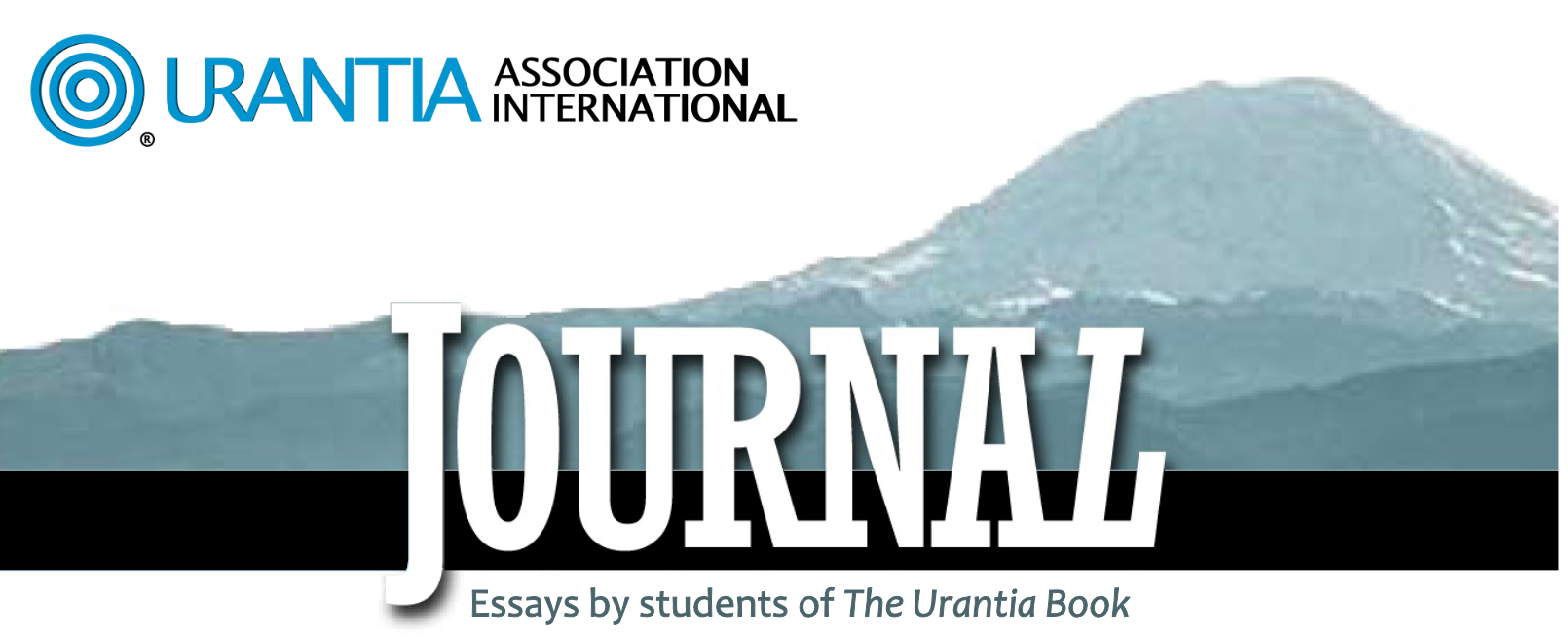Journal – May 2022
 | | Image by Kanhaiskan |
|
In This Issue
|
Welcome to the May 2022 edition of the Urantia Association's Journal, a publication dedicated to the thoughts, observations, and experiences of Urantia Book students from around the world. Our contributors explore a wide range of topics, including personal stories of spiritual discovery, finding new meanings and values, and enhancing spiritual perception. Others write about cosmology, science, and ways to improve global civilization. Throughout all these articles, we see an extraordinary diversity of thought and a spirited unity of purpose.
Our first article, Legacy and Inspiration by Neal Waldrop, addresses the long-debated topic about how The Urantia Book should be disseminated in contemporary society. Neal argues that the evangelical, mass-marketing method of spreading the teachings is ineffective in the present age, primarily because it is difficult to attract people who are just not interested in spirituality, philosophy, or cosmology. He maintains that we should continue "to rely on person-to-person contact and other techniques that are consensual and informal." Neal takes a unique perspective by contrasting the ways in which Christianity was forcibly spread in Europe during the early Middle Ages as opposed to more recent methods of evangelical work in Western civilization in the 19th and 20th centuries. He argues that neither method would work effectively today, hence the need to patiently continue with the consensual approach.
Read more
|
|
Neal Waldrop, USA  Almost everyone who encounters the fifth epochal revelation and who finds the teachings moving and inspiring, desires to share them with other human beings and help them experience the same spiritual benefits. This is entirely natural, and I reacted that way myself. On the other hand, immediate personal efforts along such lines almost invariably prove disappointing, and that was certainly what happened to me.
Almost everyone who encounters the fifth epochal revelation and who finds the teachings moving and inspiring, desires to share them with other human beings and help them experience the same spiritual benefits. This is entirely natural, and I reacted that way myself. On the other hand, immediate personal efforts along such lines almost invariably prove disappointing, and that was certainly what happened to me.
Over the next ten years or so, I eventually came to believe that the key criterion is whether or not the other person is relatively dissatisfied with his or her existing approaches to spirituality and the philosophic side of life — the question of whether or not he or she is really searching for more advanced levels of understanding and belief, even if the person concerned is not fully aware of this search and is not pursuing it consciously and deliberately.
To summarize these conclusions, I became convinced that if the other person was either fully satisfied with his or her existing approaches to spirituality and the philosophic side of life, or was just not very interested in these topics, then he or she would not be willing to devote the time, effort, and energy required to delve deeply into the teachings of The Urantia Book and eventually embrace them with conviction and commitment.
Read more
|
|
Christopher Ross, USA
Part I
 Back in high school, I would have been voted “Most Likely to Volunteer for Alien Abduction.” Thus, I was immediately intrigued by a magazine ad I saw in 2009 for something called The Urantia Book.
Back in high school, I would have been voted “Most Likely to Volunteer for Alien Abduction.” Thus, I was immediately intrigued by a magazine ad I saw in 2009 for something called The Urantia Book.
The offer was for not just one, but two copies of the book, one indexed and the other not, and they were free. What could I lose? Of course, there was the possibility that along with the books would come a few survivalists to whisk me off to a commune in Idaho where I would be forced to hoard water, guns, and apocalypse-proof tins of food, but I suspected that if anyone actually did show up with my books, “he” or “she” would have come from somewhere a bit beyond Idaho. So, I took the plunge and went to the website pitching the book.
Soon a box arrived containing two copies of The Urantia Book. The unindexed version clocked in at 2,097 pages; the indexed version, set in a two-column format, covered 1,814 pages, followed by a 312-page Index. As a result, despite the tissue-thin paper, each volume must have weighed several pounds; not exactly light reading in every sense of the word.
Read more
|
|
Claude Flibotte, Canada
We know from the revelators that our beloved blue planet is a decimal planet [58:0.1]. This means that on every tenth planet where the Life Carriers implant life, it undergoes new mechanical, chemical, and electrical mobilization patterns [57:8.8], that is, new life forms to develop possible improvements.
The Failures
 Since we live in an experiential universe that is not yet perfect, failures in attempts to improve life are possible. Among the failures that have occurred on Urantia, we can mention certain bacteria and fungi. The former have changed since the earliest dawn of life and even show some degree of regression. In the case of fungi, many of them show a retrograde movement because they have lost their ability to produce chlorophyll and have become parasitic [65:2.3].
Since we live in an experiential universe that is not yet perfect, failures in attempts to improve life are possible. Among the failures that have occurred on Urantia, we can mention certain bacteria and fungi. The former have changed since the earliest dawn of life and even show some degree of regression. In the case of fungi, many of them show a retrograde movement because they have lost their ability to produce chlorophyll and have become parasitic [65:2.3].
The amoeba and its protozoan cousins have remained almost unchanged since the beginning of life and are considered a failure by the Life Carriers for not having evolved [65:2.4].
Single-celled animals of primitive types associated themselves in colonies, such as the volvox, and later the jellyfish. Thousands of species appeared and disappeared during these ancient ages. All these specimens were nonprogressive. Even the fish family, animals from the evolutionary point of view, remained stationary [65:2.5].
Read more
|
|
Gaétan Charland, Canada  As a student of The Urantia Book and longtime host and member of study groups, I have always been more than interested in their value to the mission of The Urantia Book. I have throughout the years organized many activities to promote not only the creation of new study groups, but also to explore their purpose in the plan to disseminate the teachings of the book. I also believe that study groups are an ideal place to create new kinds of spiritual leaders and teachers who are in harmony with the teachings of Jesus.
As a student of The Urantia Book and longtime host and member of study groups, I have always been more than interested in their value to the mission of The Urantia Book. I have throughout the years organized many activities to promote not only the creation of new study groups, but also to explore their purpose in the plan to disseminate the teachings of the book. I also believe that study groups are an ideal place to create new kinds of spiritual leaders and teachers who are in harmony with the teachings of Jesus.
In this article, I list some of the reasons why it is important for each reader to participate in a study group and what I believe is their mission, philosophy, and purpose. Together, we will explore the question: “Why should I participate in a study group?”
This question is quite legitimate, and I try to give a reasonable answer supported by The Urantia Book, particularly by the life of Jesus. I also draw from the guidelines issued by The Urantia Book revelators as stated in the Publication Mandate. I will also share with you many testimonies of study group hosts and their members who were deeply touched by their participation in a study group.
Read more
|
|

The Journal is produced twice yearly and contains essays, articles and study aids by readers and for readers of The Urantia Book. Any interpretations, opinions, conclusions, or artistic representations, whether stated or implied, are those of the authors and do not necessarily represent the views and opinions of Urantia Association International, the National or Affiliate Urantia Associations, or the editorial team of the Association's Journal.
You can view the entire collection of issues in the archives. All issues before 2017 are downloadable PDF format.
The Journal is currently published in English  , French , French  and Spanish and Spanish  . (There are some older issues that were published in Finnish . (There are some older issues that were published in Finnish  .) You can view the French and Spanish Journals by clicking on the language choices in the pull down menu at the top of the page. .) You can view the French and Spanish Journals by clicking on the language choices in the pull down menu at the top of the page.
Read more
|
|
Admin Team
Most of the services for managing and coordinating Urantia Association's worldwide activities are rendered by devoted students who donate their time (and often their treasure) to the projects that help bring us closer to our heavenly Father. Your donation is what makes it possible to spread the revelation.
Donate Now
|

